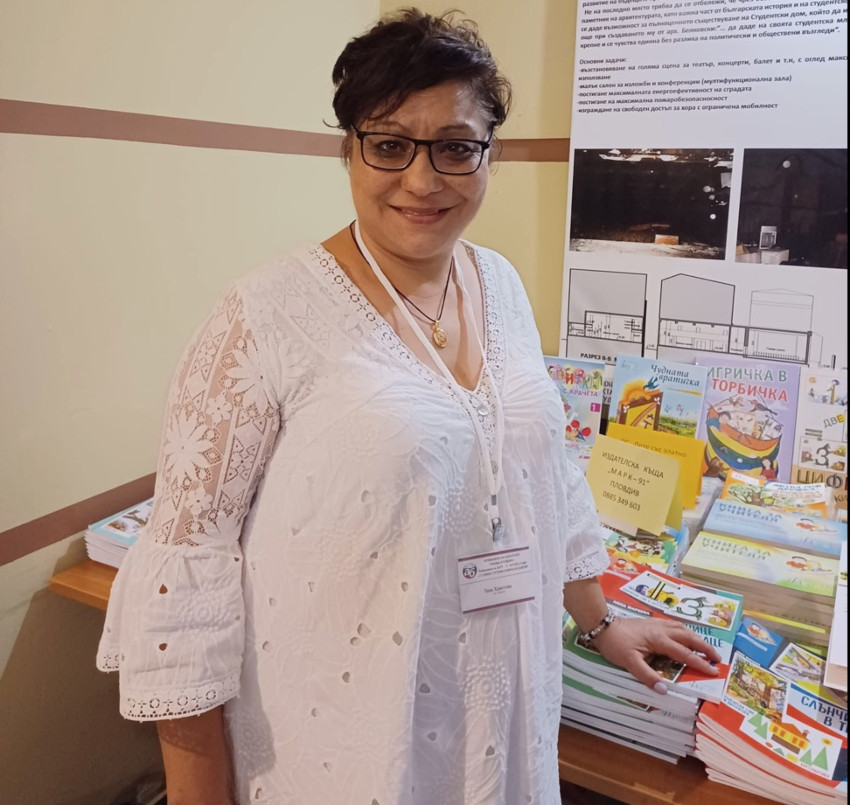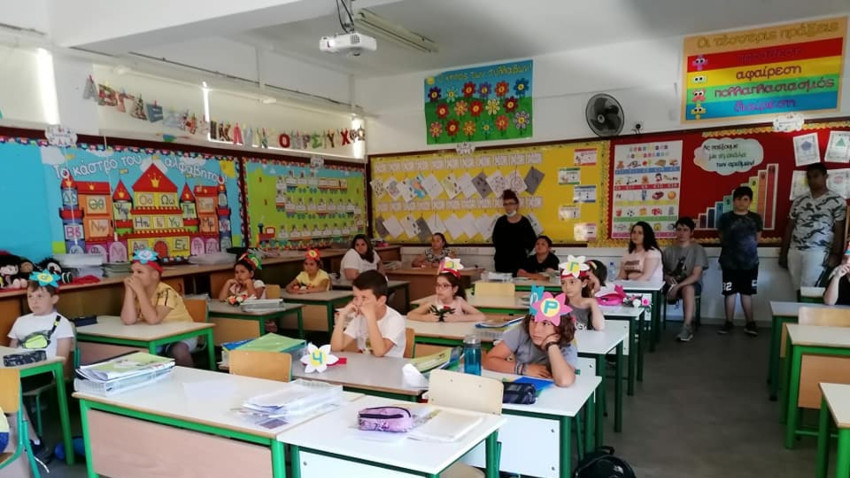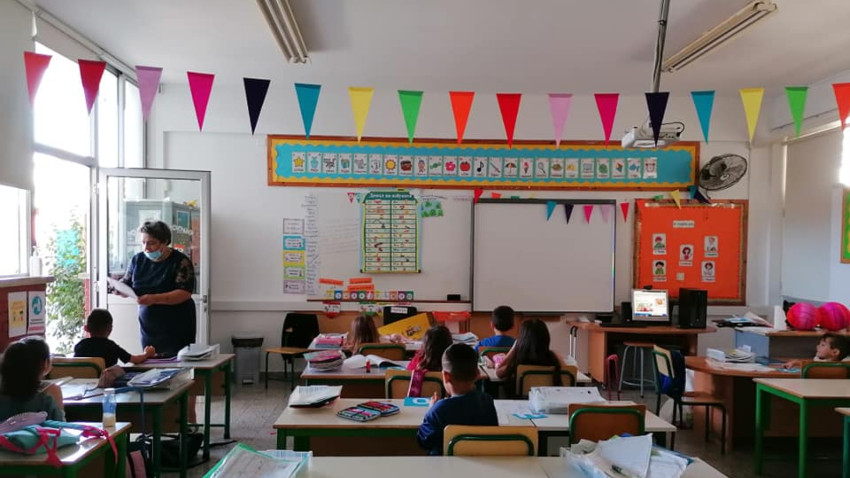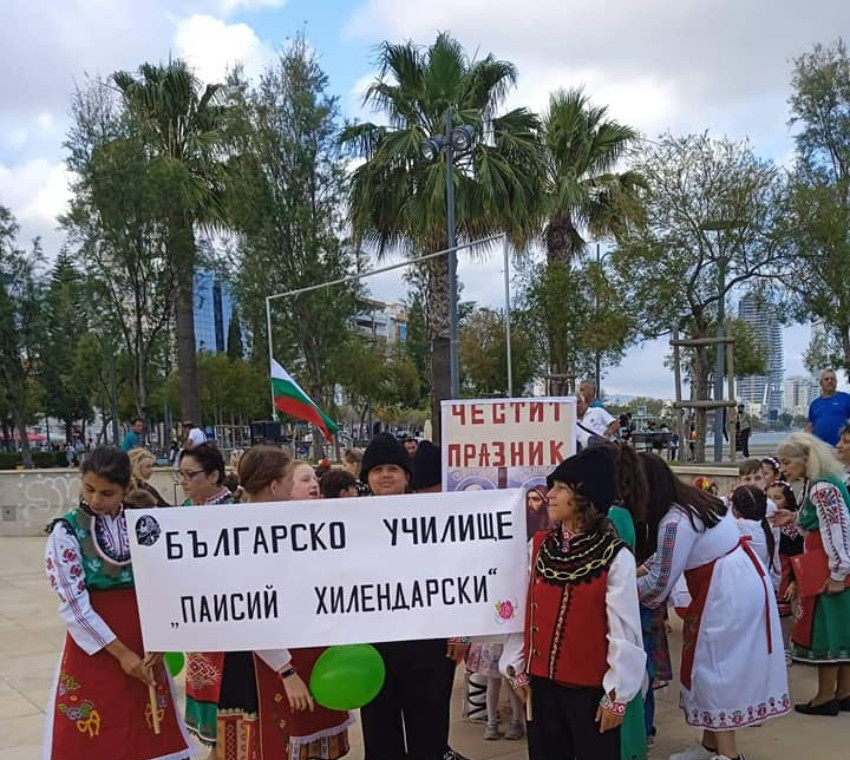According to unofficial statistics, Bulgarians living on the island of Cyprus number between 50 and 70 thousand. Many of them perceive their stay in the country as a period of temporary work abroad for profit or livelihood, and live with the thought of returning to their homeland one day. This is the reason why their children strive to be connected with Bulgaria on various levels. Among them, mastering their native language occupies a primary place.
While at home, Tanya Hristova helps Bulgarian children improve their knowledge of their native language after they return from abroad and need to integrate in Bulgarian schools. And when she went to Cyprus more than 20 years ago, parents turned to her with one question - what will our children do later if they don't learn the Bulgarian language? Thus she understands that a large part of our compatriots have no intention of settling permanently on the island.

"Then I thought about it and said to myself - yes, I have already seen what the problem is in Bulgaria”, Tanya Hristova recalls. “And I turned to our embassy in Cyprus. From there they directed me how to create a Bulgarian school. I did it for the sake of the children and their families - to return to their homeland calm and with a good knowledge of Bulgarian."
In the academic year 2011/2012, the Bulgarian school "Paisiy Hilendarski" in Limassol, founded by Tanya Hristova, opened its doors for the first time. It started without any government aid, even textbooks were not available. On the other hand, the parents of the 40 children took an active role, helping with money, making photocopies of the necessary learning aids. In the meantime, they also created the "Bulgarians Abroad" Association, which aims to support the activities of the school. And since for Bulgarian children born abroad Bulgaria is an abstract concept, teachers have the responsibility to paint for them a credible but also inspiring picture.

"For the children who have no connection with Bulgaria, the main thing is the stories of the other students who have relatives there and are visiting the country”, says Tanya Hristova, who, in addition to being a principal, is also a primary teacher in the Bulgarian school. “We work on various projects - for example, for children to study their origins, which city their parents are from, do they still have any distant relatives there. We also show them Bulgarian films."
But the thing that the first lesson always starts with is that Bulgaria is a very beautiful country. "The poem "I am a Bulgarian child" (Az sam balgarche) shows us absolutely everything, "High Blue Mountains" (Visoki sini planini) is the song that also describes our country", adds Tanya Hristova. Thus, through emotions, children become familiar with their homeland and build an attitude towards it. And all this is important, because if they don't feel some kind of feeling, some kind of attachment to Bulgaria, then the language remains dry, the teacher is convinced. Parents' help also has an impact - family conversations about Bulgaria as well as the contact with Bulgarian books, songs and films.
The Bulgarian community in Limassol is looking forward to the new school year with hope, but also with concerns.
"With great desire, the children expect to enter the school rooms live”, says their principal. “But the first and biggest problem is to switch to online training at the very beginning, because masks have already become mandatory in Cyprus. And children don't like this at all, as they miss the live contact. The other problem we face every time is whether the Cypriot school, whose building we have been using for rent for almost 11 years, will give it to us for this school year as well. Let's hope that by the end of August we will know and we won't have to look for a new building."

If the coronavirus epidemic loosens its grip, the Bulgarians in Limassol will have another pleasant experience in the coming month - the folklore festival for Bulgarian folk dances and songs, which has been organized by the association "Bulgaria Abroad" for the past 4 years.
This year's edition is scheduled for September 25, and in addition to famous Bulgarian folk singers, ensembles from all over the island will participate. The organizers imagine it as a Bulgarian forum where the guests, through the colorful folklore and the melodious language, can see with their hearts that Bulgaria is a very beautiful country.

English version Rositsa Petkova
Photoos: Bulgarian school "Paisiy Hilendarski" in Limassol, Diana TsankovaRadmila Sekerinska from North Macedonia appointed NATO Deputy Secretary General NATO Secretary General Mark Rutte has appointed Radmila Sekerinska from North Macedonia as the next NATO Deputy Secretary General. “I am happy to announce..
The traditional Bulgarian Christmas picnic, organized by the Bulgarian Cultural and Social Association "Rodina - Sydney" and the Bulgarian School "Dr. Petar Beron", will take place on December 8 , 2024 in St. Leonards Park in Sydney. "We have..
The Bulgarian national minority in Albania is one of the largest in the country, according to data from the latest official population census. A total of 7,057 individuals identified as Bulgarians. For comparison, 23,000 people identified as Greeks,..
According to the Annual Report on the Health Status of Bulgarian Citizens for 2023, t he main cause of death in Bulgaria is diseases of the..
At the Bulgarian Embassy in London, Prof. Bettany Hughes presented excerpts from the new BBC series - Wonders of Bulgaria. Prof. Bettany..
Over 3.5 million Ukrainians have arrived in or passed through Bulgaria since the beginning of the war. Nearly 200,000 people have found temporary..

+359 2 9336 661
